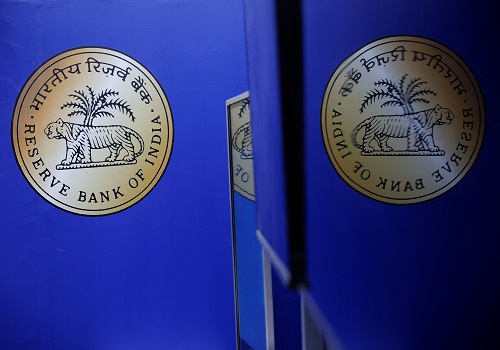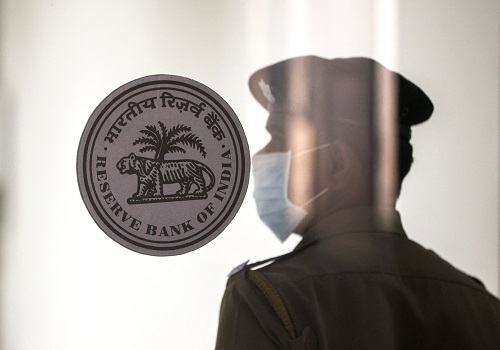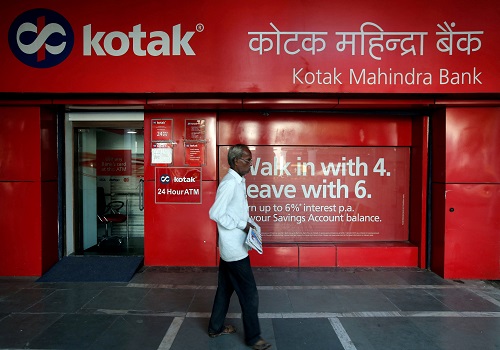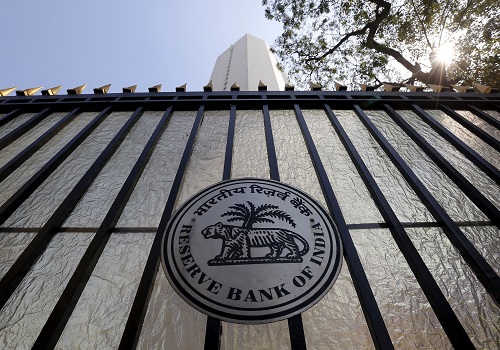Banking Sector Update - Private Banks maintain better control on spreads By Motilal Oswal

Follow us Now on Telegram ! Get daily 10 - 12 important updates on Business, Finance and Investment. Join our Telegram Channel
Swift turn in the rate cycle; lending rates for fresh loans rise sharply
Private Banks maintain better control on spreads
* As per an RBI May’22 release, the Weighted Average Lending Rates (WALR) on fresh loans has increased by 35bp MoM, with private Banks seeing a 26bp MoM increase v/s a 37bp rise for PSU Banks.
* As a result, the Weighted Average Lending Rates (WALR) on outstanding loans rose a sharp 14bp MoM to 9.76% for private Banks. The increase moderated slightly for PSU Banks (up 3bp MoM) at 8.23%.
* The one-year MCLR rate for large Banks expanded by 30-60bp over the last two months, but was narrower (-25bp to 45bp) for mid-sized Banks.
* The Weighted Average Term Deposit Cost (WATDR) for the Banking system has risen marginally (up 4bp MoM) to 5.07%. This was led by a sharp 6bp MoM increase for private Banks as the competitive intensity to garner deposits is higher compared to PSU Banks, which saw an increase of 2bp MoM. With more rate hikes in the near term, the cost of funding across PSU and private Banks has bottomed out. The potential changes in TD/saving rates will drive the movement in portfolio deposit cost.
* Private Banks reported better spreads, with the difference between the outstanding loan yield and WATDR expanding. The same for PSU Banks was almost flat. The difference in spreads between private and PSU Banks now stands at 147bp.
* We expect Banks to gradually increase their lending yields as RBI has raised the repo rate by 90bp over the last two months. We expect a repo rate hike of 60-75bp over FY23. A higher CASA mix and a calibrated increase in deposit rates, given the ample liquidity, will help limit the increase in portfolio deposit costs. Banks with a higher mix of floating rate book stands to benefit from the turn in the rate cycle. We continue to prefer ICICIBC and SBIN.
WALR on fresh loans increases by 35bp MoM in May’22
* WALR on fresh loans rose 35bp MoM in May’22, with PSU Banks seeing a sharp rise (up 37bp) v/s a 26bp increase for private Banks. The increase was driven by a 40bp hike in the repo rate in May’22 and a rise in MCLR as funding costs for Banks have increased.
* As a result, WALR on outstanding loans for Banks increased by 7bp MoM to 8.79%, led by a 14bp/3bp MoM expansion for private/PSU Banks. Yields stood at 9.76%/8.23% for private/PSU Banks.
* The one-year MCLR rate for large Banks rose by 30-60bp. The increase slightly moderated for mid-sized Banks at 25-45bp during the same period
WATDR rose marginally (+4bp MoM) in May’22; funding cost bottoms out
* WATDR rose 4bp MoM to 5.07%. The increase (up 6bp MoM) is sharper for private Banks as competitive intensity to garner deposits is higher. WATDR for PSU increased marginally (up 2bp MoM) to 5.13%.
* All Banks have recently increased their term deposit rates, following the hike in the repo rate by RBI. As Banks continue to fight over deposits and RBI raises rates further, we expect Banks to increase their deposit rates. However, a calibrated increase in deposit rates, given the ample liquidity and healthy CASA mix, will limit the increase in overall funding costs. Large Banks, with a strong CASA ratio, are better placed to navigate the challenge of rising cost of funds.
Spreads differential widens further between private and PSU Banks
Private Banks have always had a higher share of high yielding assets as compared to their PSU counterparts due to their dominance in unsecured loans. The lending yield differential between the two sets currently stands at 147bp. As RBI hikes rates further, we expect the spread differential between private and PSU Banks to widen.
Banks with higher mix of floating rate book to gain; prefer ICICIBC and SBIN
We expect a gradual increase in the lending yields for Banks as RBI has hiked the repo rate by 90bp over the last two months. We expect a further repo rate hike of 60-75bp over FY23. A higher CASA mix and calibrated increase in deposit rates, given the ample liquidity, will help limit the increase in portfolio deposit costs. Banks with a higher mix of floating-rate book stands to benefit from the turn in the rate cycle. We continue to prefer ICICIBC and SBIN.
To Read Complete Report & Disclaimer Click Here
For More Motilal Oswal Securities Ltd Disclaimer http://www.motilaloswal.com/MOSLdisclaimer/disclaimer.html SEBI Registration number is INH000000412
Above views are of the author and not of the website kindly read disclaimer









Tag News

AU Small Finance Bank jumps on entering into bancassurance tie-ups with Star Health and Baja...
More News

Retail Sector Update - Festive season expected to revitalise recovery rates - ICICI Direct












